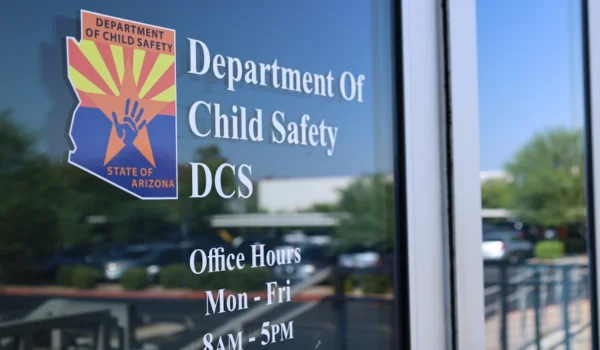When individuals or families believe that the Arizona Department of Child Safety (DCS) has violated their federal rights, they may consider filing a civil lawsuit in federal court. These lawsuits typically allege violations of constitutional rights or federal statutes. Understanding the legal framework, including applicable statutes, procedures, and recent case law, is crucial for navigating such legal actions.
Legal Grounds for Suing DCS in Federal Court

Individuals may pursue legal action against DCS under various federal statutes, including:
- 42 U.S.C. § 1983: Allows individuals to sue state actors, including DCS officials, for violations of constitutional rights under color of state law.
- Americans with Disabilities Act (ADA): Prohibits discrimination based on disability. In December 2024, the U.S. Department of Justice found that DCS violated the ADA by discriminating against parents and children with disabilities, including failure to provide effective communication and reasonable accommodations .
- Medicaid Act (42 U.S.C. § 1396): Provides federal funding for healthcare services. In the case BK v. McKay, minors in Arizona’s foster care system sued DCS under this statute, alleging inadequate healthcare services .
Statute of Limitations and Filing Deadlines
In Arizona, the statute of limitations for filing a lawsuit against a public entity or employee is generally one year from the date the cause of action accrues . However, for federal claims under statutes like § 1983, the applicable statute of limitations is determined by federal law, which typically borrows the state’s personal injury statute of limitations. Therefore, the one-year limitation period may apply.
It’s important to note that certain claims, such as those involving minors or disabilities, may have different accrual rules or extended timeframes. For instance, the discovery rule may apply, allowing the statute of limitations to start when the plaintiff discovers or should have discovered the injury.
Recent Legal Precedents Involving DCS
Several significant cases have addressed issues related to DCS:
- BK v. McKay (2015): This class-action lawsuit alleged that DCS violated the constitutional rights of children in foster care by failing to provide adequate healthcare services. The case highlighted systemic issues within DCS and led to discussions about the agency’s responsibilities under federal law .
- Phillip B. v. Mike Faust (2020): In this case, the Arizona Court of Appeals ruled that DCS could not unilaterally place an individual’s name on the child abuse registry without due process. The court emphasized the importance of procedural fairness in administrative decisions .
- Department of Justice Findings (2024): The U.S. Department of Justice found that DCS discriminated against parents and children with disabilities by failing to provide effective communication and reasonable accommodations, violating the ADA .
Steps to File a Federal Lawsuit Against DCS
- Consult an Attorney: Engage with an attorney experienced in civil rights or federal litigation to assess the merits of your case.
- File a Notice of Claim: Before suing a public entity in Arizona, you must file a notice of claim within 180 days of the incident. This step is required under Arizona law and is a prerequisite for filing a lawsuit .
- Prepare the Complaint: Draft a complaint outlining the legal basis for your claims, the facts supporting those claims, and the relief sought.
- File in Federal Court: Submit the complaint to the appropriate U.S. District Court. In Arizona, this would typically be the District of Arizona.
- Serve the Defendants: Properly serve DCS and any other involved parties with the lawsuit documents.
- Proceed with Litigation: Engage in the litigation process, which may involve motions, discovery, and potentially a trial.
Conclusion
Filing a federal civil lawsuit against the Arizona Department of Child Safety involves navigating complex legal procedures and adhering to specific timelines. Understanding the applicable statutes, such as § 1983 and the ADA, is crucial. Recent cases and findings have underscored the importance of procedural fairness and non-discrimination in DCS operations. Individuals considering such legal action should consult with qualified attorneys to ensure their rights are protected and to receive guidance tailored to their specific circumstances.

 Oliver Johnson is LawScroller’s Senior Legal Correspondent specializing in civil litigation, class actions, and consumer lawsuit coverage. He breaks down complex settlements and court decisions into clear, practical guidance for readers.
Oliver Johnson is LawScroller’s Senior Legal Correspondent specializing in civil litigation, class actions, and consumer lawsuit coverage. He breaks down complex settlements and court decisions into clear, practical guidance for readers.